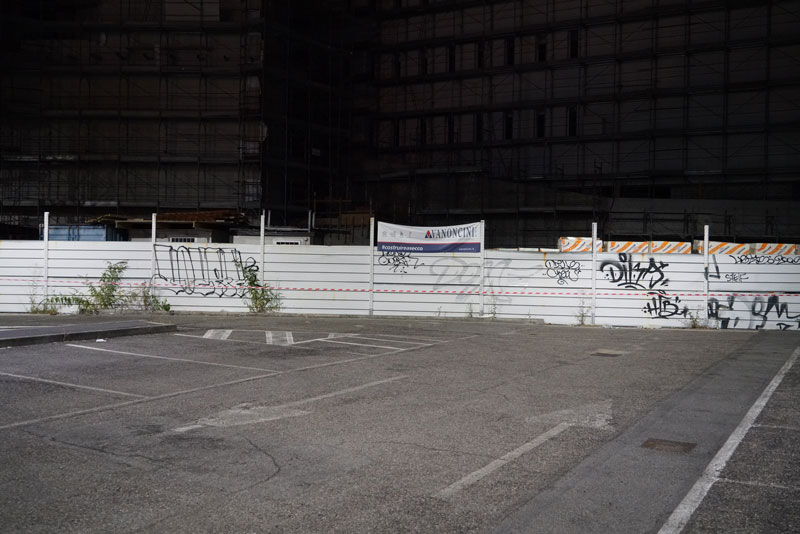Himalayan balsam
dual Channel video installation, 3 min loop, 2016
A list of invasive species in Europe including the 37 species banned by the EU juxtaposed with bees on Himalayan balsam as well as brand new Berlin office buildings: PricewaterhouseCoopers, the Futurium, the Federal Anti-Discrimination Agency, the Federal Ministry of Education and Research, the BMW Foundation Herbert Quandt, the Federal Press Conference as well as the Holzmarkt.
Reflected as well are the rebound effects of sustainable development and a green economy. Outlines of a post growth economy, as suggested by Niko Paech, appear, either “by design or by disaster”. He calls for a liberation from excess, restrictions upon industrial value added processes and for patterns of self-sufficiency to be strengthened.
The Installation also addresses the potential of growth as outlined e.g. by Christine Lagarde, Managing Director of the IMF, in her remarks at Northwestern University on September 28, 2016: “Boosting Growth and Adjusting to Change”. “if we want to keep globalization alive for the next generation, there is no alternative to ensuring that it works to the benefit of all …
Let us start with what I have called a three-pronged strategy: using structural, fiscal, and monetary policies in a country-specific way to make them mutually reinforcing.
First, we need to identify for each country a set of structural reforms that provide the biggest effect on growth and productivity relative to the political capital that needs to be spent. …
Second, as for fiscal policies, few would dispute that better roads and airports, more power grids, and high-speed internet are essential components of modern public infrastructure. …
Coordination
Finally, let me emphasize one important and often overlooked aspect of global policy making—the one relating to policy cooperation, or even coordination.
Eight years after Lehman Brothers, countries have gone back to their old ways of policy making, largely following their domestic policy priorities. No doubt, the current situation is different from the 2008 crisis, which required a prompt, massive, and coordinated fiscal response. But as our “new mediocre” is less acute, it is also more divisive and subtle than a full-blown crisis, and it could prove just as toxic as the recovery has so far proven elusive. This requires a more sophisticated and coordinated approach. The principle is simple: if all countries act decisively to stimulate their own growth, the positive spillovers reinforce each other. And as everyone is working to expand growth, everyone benefits from the efforts of others, to a much greater effect overall. …
Let me conclude. The bottom line is this:
First, do no harm. Restricting trade and limiting economic openness is sure to worsen the growth outlook for the world and especially its weakest citizens. But we need to rethink fundamentally how growth can be made more inclusive, and act accordingly.
Second, stronger, better growth is possible and will facilitate inclusion. By using monetary, fiscal, and structural policies in concert—within countries, across them, and consistent over time—we can make the whole greater than the sum of the parts.“
